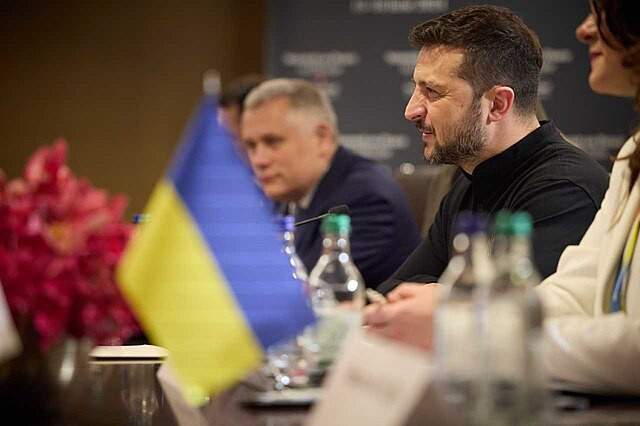Ukraine has intensified its offensive within Russian territory, with President Volodymyr Zelensky declaring that Ukrainian forces are "getting stronger" in the Kursk region. Over the weekend, Ukrainian troops executed precision airstrikes that obliterated a second key bridge over the Seym River, further tightening their grip on this contested area.
The Kursk offensive, which began as a surprise cross-border incursion earlier this month, has left Russian forces scrambling to defend their own territory. The Ukrainian military's actions appear to be part of a broader strategy aimed at both bolstering morale and stretching Russian military resources thin. A senior aide to President Zelensky indicated that the incursion is also intended to ensure Ukraine can negotiate from a position of strength in any future peace talks.
"Our foothold in Kursk is getting stronger," Zelensky said in a recent address. "Now we are reinforcing our positions," he added, signaling Ukraine's intent to maintain and possibly expand its presence in the region. The recent bridge attacks, which have severely disrupted Russian supply lines, underscore Kyiv's determination to cripple Moscow's logistical capabilities.
On Sunday, Ukrainian Air Force Commander Mykola Oleshchuk confirmed the successful strikes on social media, sharing a video that showed smoke billowing from the remnants of the second destroyed bridge. "The Air Force continues to deprive the enemy of logistics capabilities with precision air strikes, which significantly affects the course of combat operations," Oleshchuk stated.
These strikes are the latest in a series of aggressive maneuvers by Ukrainian forces, who have reportedly seized control of over 1,000 square kilometers of Russian territory since the onset of the Kursk offensive. Ukrainian forces now control the strategic town of Sudzha and have established a military command center there, signaling their intent to hold and fortify these gains.
Despite these successes, Ukraine faces significant challenges in the eastern part of its own territory, where Russian forces continue to exert pressure. In the Donetsk region, Russian troops have advanced closer to the city of Pokrovsk, a critical hub for Ukrainian military operations. The city's proximity to Kostiantynivka, another key military center, makes it a vital link in Ukraine's supply chain. Ukrainian officials have accelerated the evacuation of civilians from Pokrovsk as Russian forces edge nearer, with nearly 1,800 residents evacuated in the past week alone.
"The Russians are close, up to 11 kilometers from the outskirts of the town," Serhii Dobriak, head of the Pokrovsk city military administration, said on Sunday. "The Russians are destroying our towns and villages, killing civilians, so we need to think about our safety and evacuate," he added, highlighting the dire situation on the ground.
As the battle rages on multiple fronts, Ukrainian President Zelensky has called on Western allies to lift remaining restrictions on the use of their weapons in strikes deeper into Russian territory, including in Kursk. "It is crucial that our partners remove barriers that hinder us from weakening Russian positions in the way this war demands," Zelensky said on the social media platform X. He argued that with sufficient long-range capabilities, Ukrainian forces could deprive Moscow of "any ability to advance and cause destruction."
The ongoing conflict has seen a marked increase in missile attacks on both sides. Russian forces have launched a series of missile strikes on Kyiv, targeting the Ukrainian capital with ballistic missiles for the third time this month. Ukrainian air defenses have successfully intercepted all the missiles, according to Serhii Popko, head of the Kyiv municipal military administration.
Meanwhile, the safety of the Zaporizhzhia Nuclear Power Plant remains a significant concern. The head of the U.N.'s International Atomic Energy Agency (IAEA), Rafael Grossi, has warned of deteriorating safety conditions at the Russian-occupied facility following reports of a drone strike in the vicinity. The IAEA team stationed at the plant reported that the explosion occurred near critical infrastructure, raising alarms about the potential risks to nuclear safety.
The conflict, now in its tenth month, has exacted a heavy toll on both sides. Ukrainian officials claim that over 40,000 Palestinians have been killed, and Russian forces continue to suffer losses as Ukraine presses its offensive. As the war grinds on, the international community watches closely, with the potential for further escalation looming large on the horizon.




